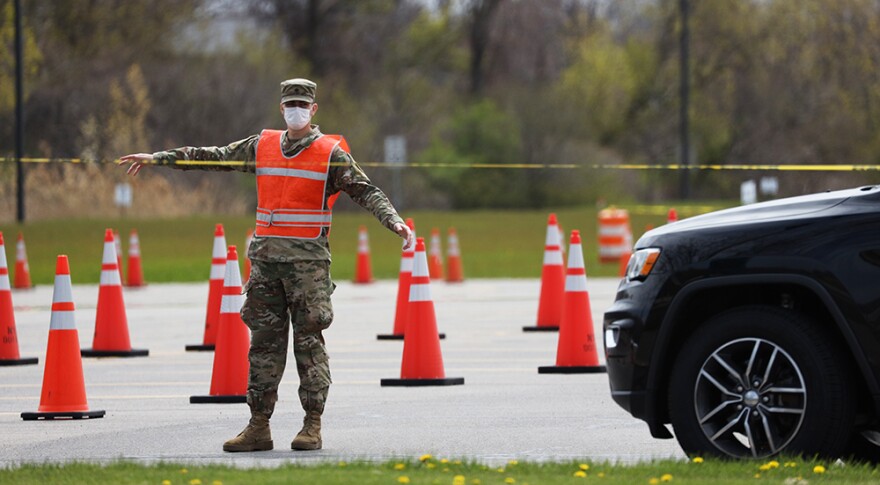Two types of testing for the virus that causes COVID-19 are increasingly accessible in the Rochester area.
One is the test that looks for the virus, allowing doctors to diagnose whether a person is currently infected. The other searches for antibodies, which indicate whether a person was already exposed and fought the virus off.
Both tests are available at clinics in and around Monroe County and across upstate New York -- but there are big differences not just in what they test for, but also in how to get them and how much they’ll cost.
Virus testing
Test kits for the virus used to be in short supply. In recent weeks, though, supply has begun outpacing demand for the tests. Both Rochester Regional Health and the University of Rochester Medical Center said their labs can process more samples than they’re receiving.
As testing capacity expanded, the New York state health department expanded its guidance for who should be tested for the virus. Now, the state says, anyone who meets one or more of these criteria should get a test:
- A person who is symptomatic or has a history of symptoms of COVID-19;
- has had close contact with a person known to be positive with COVID-19
- is subject to quarantine;
- is employed as a health care worker, first responder, or other essential worker who directly interacts with the public while working;
- presents with a case where the facts and circumstances -- as determined by the treating clinician in consultation with state or local department of health officials -- warrant testing;
- is included under other criteria set by the state health department based on an individual's place of residence, occupation, or other factors; or
- would return to work in Phase 1 of reopening.
In addition, several clinics in Monroe County said they have the capacity most days to test people even if they don't meet any of these criteria. "If you're curious, call us. We can probably get you in," said a representative at the WellNow urgent care clinic in Irondequoit.
Most virus tests use a nasal swab, usually inserted deep into a patient's nose, to collect a sample for analysis.
A state-run testing center at the Monroe Community College campus in Brighton is scheduling appointments days in advance -- call the New York coronavirus hotline at 888-364-3065 to make an appointment.
The state health department has a website that lists other testing facilities near a user’s location. Most require, or at least request, calling ahead and making an appointment.

Trillium Health’s clinic on Monroe Avenue in Rochester, for example, accepts walk-ins for coronavirus testing, though the company said it prefers that people make appointments.
The federal coronavirus stimulus package requires insurance companies (and Medicaid) to cover diagnostic tests at no cost to consumers.
Testing positive for the novel coronavirus triggers a response from the county health department that includes contact tracing and an isolation order.
Antibody testing
Testing for the antibodies that signal a person has already fought off an infection by the novel coronavirus is available at several urgent care clinics in and around Rochester -- but doctors are urging people to be very careful about acting based on the results of these tests.
The tests use small samples of a patient's blood, usually collected from a finger prick, for analysis.
No antibody test for the virus that causes COVID-19 is yet approved by the federal Food and Drug Administration, and researchers say the tests vary widely in reliability.

Local doctors worry that people who test positive for antibodies will abandon the distancing, handwashing and mask-wearing that public health officials say have prevented hospitals from being overwhelmed with COVID-19 patients.
There is no definitive evidence that a positive antibody test confirms immunity to the virus.
But if the results are gathered in a controlled way, the tests could be useful for analyzing the prevalence of the virus in a population, or for identifying people who might be able to donate blood plasma for immunization research.
Local insurance companies said they have different rules for covering the cost of antibody tests.
The region’s largest health insurer, Excellus BlueCross BlueShield, said it covers antibody testing if a doctor determined it to be medically appropriate for diagnosis and treatment, the test was FDA-approved or -authorized, and the lab performing the testing was appropriately certified.
MVP Health Care, the region’s second-largest health insurance company, said coverage for antibody testing was still under review.
Paying out-of-pocket for the tests would cost upwards of $100.







